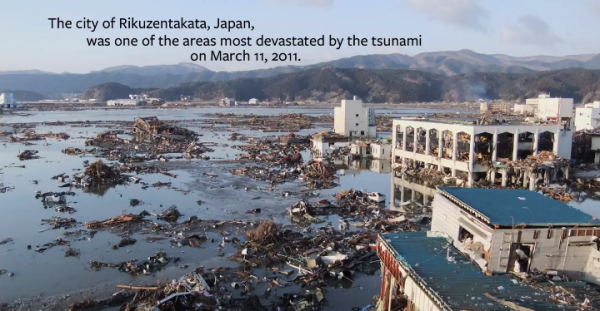
In 2011, when news struck of the quake and tsunami, I remember watching in horror as video footage began broadcasting on NHK. As it turned out, the quake was just a precursor to more horrific disasters to come. The tsunami wiped out countless lives and cities. Then the Fukushima Dai-ichi power plant nuclear reactor incident(s) escalated to be a Level 7 crisis rating– the highest since Chernobyl.
Beyond the headlines and coverage, racist Tweets emerged online, comparing the death tolls of the quake and Pearl Harbor. Stories about the lack of Japanese looters— no wait, there were looters— also came to light. The theory of “no looters” were published alongside stories which theorized that the Japanese respect for authority possibly prevented thousands of needless deaths.
One the one year anniversary of the quake, it was clear that the recovery was far from over.
Now, after three years, check out this video directed by Mina T. Son & Sara Newens being shared as a Facebook Story about how the city of Rikuzentakata is faring:
http://vimeo.com/88625751
In April 2013, a small boat washed ashore in Crescent City, Calif., and was soon found to be a piece of debris from the 2011 tsunami in Japan. Humboldt State University professor Lori Dengler, a tsunami expert, learned that the boat might have belonged to Takata High School in Rikuzentakata, so she sent a message to the city’s Facebook Page, which she had been following since her own visit to the area for research. Someone quickly replied and was able to find a teacher who recognized the boat as the school’s.
The boat had traveled about 5,000 miles over two years before it landed in Crescent City, a town that also experienced a tsunami that same day in 2011. A group of Del Norte High School students were struck by the many similarities between Crescent City and Rikuzentakata, so they volunteered to clean up the boat and return it to Takata High School. Last month, the city of Rikuzentakata and Takata High hosted the Del Norte students in Japan and thanked them for their friendship and for providing a reminder that their struggle has not been forgotten.To make your own connection to Rikuzentakata and to follow the city’s recovery, visit facebook.com/RikuzentakataCity








